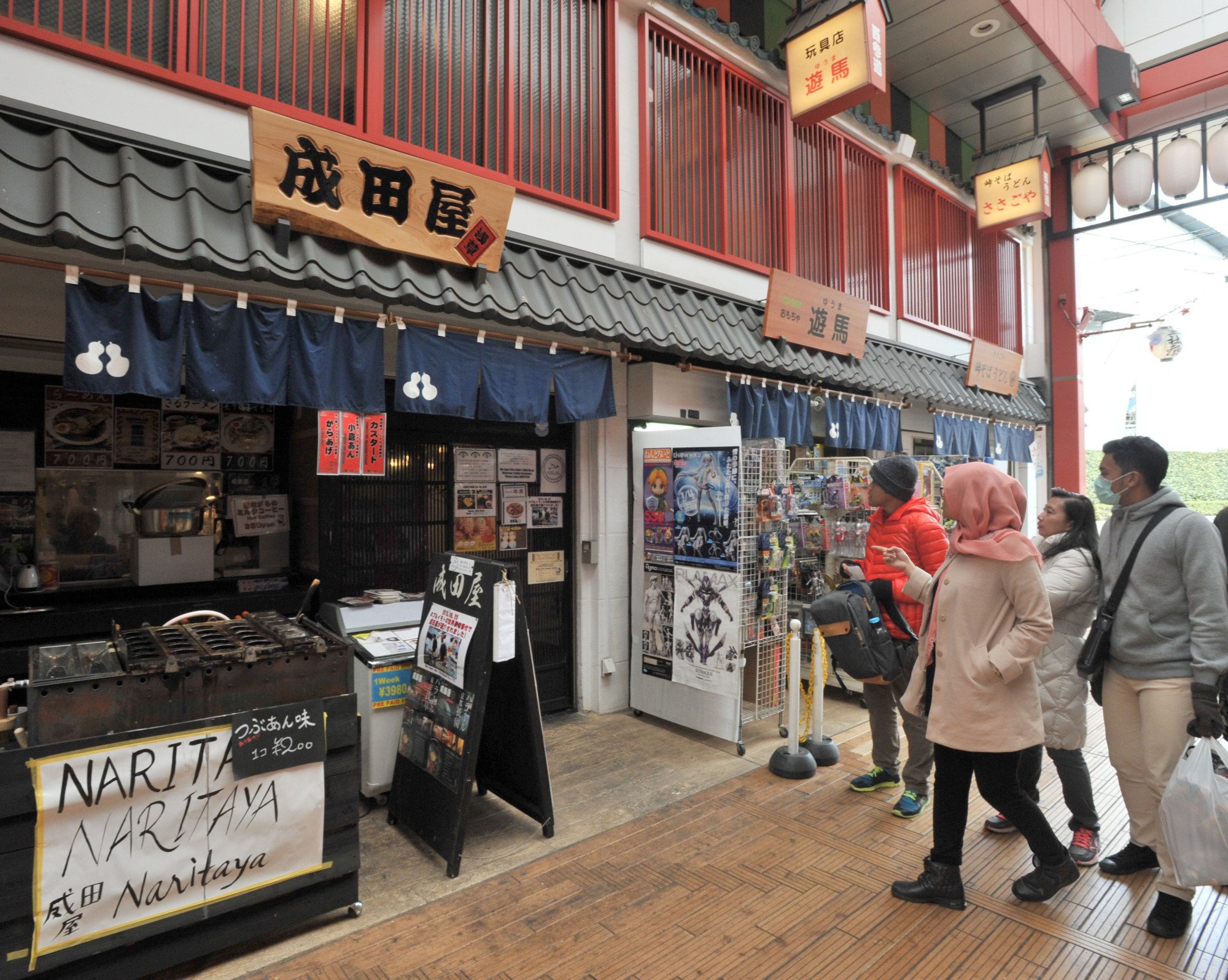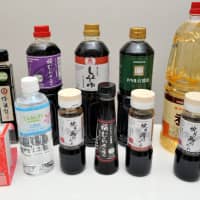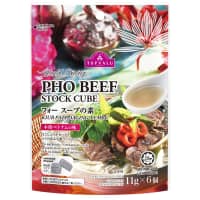There was a bit of a scrum outside Ajiran ramen house on Feb. 27, when around 30 media representatives and food buffs waited to sample the fare on offer at the newest noodle shop on the block in Ikebukuro, Tokyo.
Interestingly, there was no miso, tonkotsu (thick, pork-based ramen), Kitakata ramen, or any other usual suspects on offer. Ajiran's speciality is a pleasantly piquant beef ramen, prepared by Ma Mumai, a Chinese chef who was headhunted by Saitama-based store owner, Toho Shoji Co.
Toho President Yu Shan explains the chef had a specific skill that is crucial to Ajiran's raison d'etre: He is of Hui Muslim descent and has 15 years experience of operating a halal restaurant in China's Jiangsu province.
"Unlike other ramen, where pork stock is widely used, we use absolutely no pork products or alcohol, which most Muslims cannot consume based on Islamic teachings," said Shan, adding that while the "ran" in the restaurant name is taken from a popular Chinese beef ramen called "ranshu," it also means "halal." "It's surprisingly difficult to find chefs in Japan who can prepare halal food — something we plan to address."
Judging by official statistics, they'll need to get a move on. According to Japan Tourism Agency figures, visitors from Indonesia, where Muslims make up 90 percent of the population, and Malaysia (60 percent) totaled close to 900,000 in 2018, a more than threefold increase over 2013 figures.
And with the Muslim population predicted to almost double to 3 billion over the next four decades, burgeoning economies in Southeast Asia, and a significant projected growth in the travel market size of Muslims — from $151 billion in 2015 to $243 billion by 2021 — Japan has been making plans to cash in.
As part of its 2016 new tourism strategy to invigorate the Japanese economy, the government set up an action plan looking at ways to "improve the ... environment to receive more Muslim travelers."
Some pointers to achieving this objective were found in the Mastercard-Crescentrating Global Muslim Travel Index — an annual survey assessing the capacity of countries to cater to Muslim visitors.
More than 100 countries are ranked on criteria such as accessibility — visa requirements and air connectivity, for example; ease of communicating; the tourism environment, including level of safety; and core needs such as the availability of cultural-specific food and prayer facilities.
In 2015, Japan ranked 37th overall, three places below the U.S. and five places below Belgium.
Unsurprisingly, the area where Japan performed well was in safety and culture, where it scored a satisfaction level of 100. Lower scores, however, came in the ease of communication (24.3), places to pray (20) and food (30.5).
"We thought we needed to look at these last two in particular," said the tourism agency's Akihiko Yamakoshi. "We wanted to start with elements that could be implemented easily."
Subsequently, the government compiled a 76-page "Muslim Hospitality Guide Book" and sent it to municipalities nationwide.
It not only aimed to explain the basis of Islamic belief and how that influences the daily lives of its followers — including a no-pork, no-alcohol diet and obligation to pray five times daily — but also outlined suggestions to easily adapt the tourism environment to meet such needs.
First up was food, which would seem to be simple enough considering Japan's penchant for fish, noodles and other non-meat foodstuffs. For many Muslims, however, it's a culinary minefield.
"For anyone who can't read Japanese, the issue isn't just the food, but knowing what it contains," explained Febriani Rafa Yasari from Indonesia, who is studying business management at Teikyo University. "Most places have no explanations and even if there's labeling, many visitors cannot read them."
Concerned with such issues, some municipalities, particularly those with high international tourist traffic, started to implement measures to mitigate them.
In Takayama, which is the gateway to the UNESCO World Heritage site Shirakawa-go in Gifu Prefecture, there are now seven restaurants that serve Muslim-friendly meals. Four of those establishments offer prayer rooms with washing facilities, another must for many believers of Islam.
"The more we looked into it, the more we understood the plight faced by Muslim visitors," said Daichi Shimizu, whose Takayama-based food distributing company, Shimizu Yayoi-do, has been key to the spread of Muslim-friendly restaurants in the city. "Many were reduced to buying meals from convenience stores, which we thought was regrettable both from an emotional and local economy perspective."
Shimizu's company is one of many around Japan developing ways to overcome common pitfalls with Japanese products to make them halal.
Among them are essential condiments, such as soy sauce and mirin, both of which contain alcohol, while white sugar is bleached using animal bone char, says Tomohiro Sakuma, who heads the Japan Halal Business Association.
To date, 8,000 companies, mostly from the food industry, have passed through the JHBA's courses, which aim at increasing halal understanding and developing halal products both for domestic consumption and export, according to Sakuma.
It also supports companies developing non-food products such as cosmetics and pharmaceuticals that are halal, he added.
Additionally, the JHBA serves as a conduit for outlets such as Ajiran when they are trying to obtain halal accreditation from official certifying bodies, including the Japan Muslim Association.
"Those who want certification must go through a strict inspection process," said Sakuma. "Officials visit applicants' kitchens to ensure they are using appropriate halal ingredients, such as meat that has been slaughtered according to Islamic guidelines. If there's any sign of non-halal products being mixed in, they won't be certified."
A high concentration of accredited halal shops can be found in Tokyo's Taito Ward, where some 30 restaurants have obtained certification, inspired by a municipal incentive that covers 50 percent of certification-related fees, according to tourism division official Ryo Miyazawa.
Taito Ward also produces a tourist guide map, indicating all certified stores, many of which also offer prayer rooms, he added.
The ward started the halal certification project in 2015, but has been seeing a rapid rise in visitors from Southeast Asian countries with high Muslim populations since 2010, when visa restrictions were eased for countries such as Malaysia, Indonesia and Thailand, Miyazawa noted.
"Consequently, we convened seminars based around the issues facing Muslim tourists," he said. "I think imparting the Japanese sense of hospitality is extremely important for Muslim visitors, which represent a huge market."
The government's action plan seems to be paying off. In the most recent Global Muslim Travel Index, Japan was singled out for its "significant improvement" having climbed to 25th place overall and fourth among non-Organization of Islamic Cooperation countries.
And while improvements in the food sector are needed, more and more municipalities, including those in Okayama, Toba and Ise cities, are embracing the need for Muslim-friendly services, utilizing Facebook and other SNS to spread the word, according to JTA's Yamakoshi.
"At face value, making such preparations may seem complicated, but many people are beginning to realize that even small adjustments can achieve a lot," said Yamakoshi, adding that one Gifu store has developed easy-to-understand pictograms to explain goods on its shelves.
"We want Muslim visitors to visit Japan with peace of mind, to come here knowing that their needs will be met, especially as we head toward the 2020 Tokyo Olympics."
Download the PDF of this halal grows ahead of 2020 Games special
For more information, please visit us at http://www.hdcglobal.com





















With your current subscription plan you can comment on stories. However, before writing your first comment, please create a display name in the Profile section of your subscriber account page.